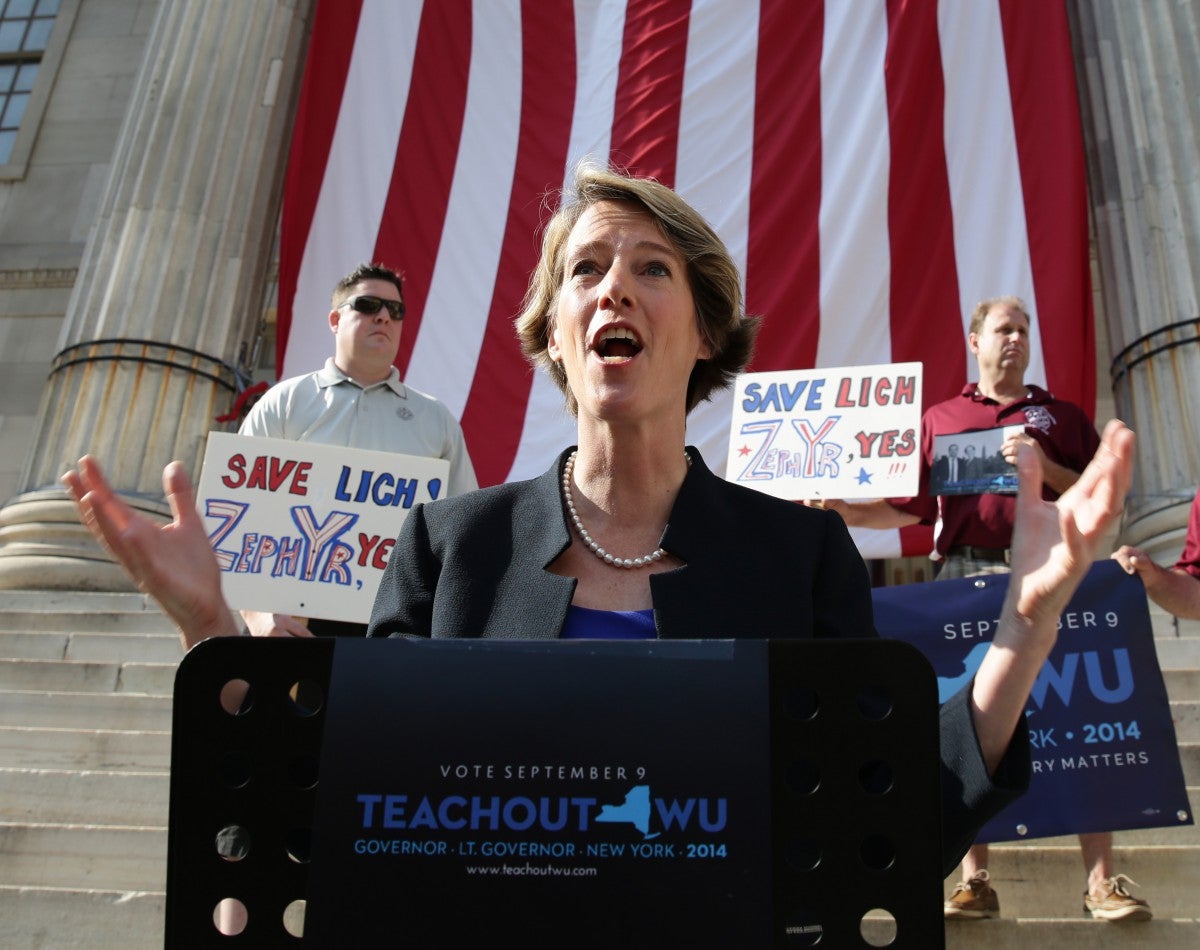Why a tough year for America’s Democrats could be a good opportunity for the party’s far left
Most of the world by now knows of the Tea Party, the right-wing political movement that has been a formidable force in American politics in recent years. There is no equivalent ”Tea Party of the left,” at least not yet. But there is a small, growing national cohort of progressives—those who define themselves as to the left of most mainstream Democratic party policies, as the Tea Party is to the right of mainstream Republican ones.


Most of the world by now knows of the Tea Party, the right-wing political movement that has been a formidable force in American politics in recent years. There is no equivalent ”Tea Party of the left,” at least not yet. But there is a small, growing national cohort of progressives—those who define themselves as to the left of most mainstream Democratic party policies, as the Tea Party is to the right of mainstream Republican ones.
This might seem like a particularly bad year for left-wingers to make a dent. In the mid-term Congressional elections in November, Democrats will struggle to maintain control of the Senate, let alone take back the House of Representatives. But the progressives aren’t planning to win seats as much as they are trying to get their populist economic ideas into the national discourse, says Conor Boylan of the Progressive Democrats of America (PDA), a political action committee dedicated to funding and electing progressive candidates to Congress. ”We’ve always adopted the mantra that we’re in it for the marathon, not a sprint,” he told Quartz.
Changing the conversation
Among the things progressives would like to see are stricter regulation of Wall Street and a ”Robin Hood Tax” on financial transactions, taking 0.5% of every trade in derivatives, stocks, bonds, and foreign exchange, which they say would generate hundreds of billions of dollars in revenue each year. They also want to peg the benefits paid out by Social Security, the government’s social insurance program, to a new “Consumer Price Index for the Elderly” to more accurately reflect rising healthcare and housing costs for older Americans. (A bill supporting these measures was introduced in Congress last year but failed to even get to a floor vote.)
The two people who have done the most thus far to spread such ideas are Elizabeth Warren, the Massachusetts senator who has made a career out of railing against Wall Street (and attracts supporters who think Barack Obama’s administration has been too soft on big banks), and Bernie Sanders, the openly socialist Vermont senator. But while Warren and Sanders grab the headlines in Washington, progressive candidates are starting to make a mark in primaries across the country.
Zephyr Teachout is perhaps the best known of this bunch. A law professor at Fordham University in Manhattan, she was until recently known in Democratic circles only as the internet organizer on the failed Howard Dean 2004 presidential campaign. Today, she is challenging the governor of New York state, Andrew Cuomo, in the Democratic primary for the governorship.
Her chances of beating him are slim, despite his falling popularity and a corruption scandal. Cuomo is the candidate of the establishment, endorsed by the Democratic party’s leadership, and has raised $35 million in campaign funds this year. Teachout has only raised slightly more than $300,000.
But she says it’s not about winning per se. “I decided to run… because we as progressives no longer have a choice,” Teachout told Quartz outside one of several New York City campaign events last month. “People rightly believe that political power is held in the hands of a few and unless progressives mobilize themselves to change the status quo in this country, nothing short of the legitimacy of American democracy is at stake.” The central issue of her campaign has been corruption, specifically radically reforming New York’s lax campaign finance laws, but she has also vigorously campaigned for more funding for public education, an increase of the state’s minimum wage and a ban on hydraulic fracturing (fracking), on which the state currently has a moratorium.

Teachout’s chances of winning the primary may be small, but other progressives have had some successes. In New Jersey, Bonnie Watson Coleman, a former state assemblywoman who told voters she would raise taxes on millionaires and spend the money on education, won resoundingly in her congressional Democratic primary against a more moderate state senator. In Iowa, Pat Murphy, a former speaker of the Iowa state house, ran for the congressional primary on a promise to raise the state’s minimum wage, and beat out four opponents by a double-digit margin.
And in a congressional primary in California’s Silicon Valley, Mike Honda, a progressive, easily beat Ro Khanna, the well-funded and favored candidate of the district’s tech billionaires. To be fair, Honda was the incumbent Congressman, not the challenger, and California’s unique intra-party primary rules will allow Khanna to run again in November’s general election. But Honda is still heavily favored to win, despite his opponent’s clout.
Progressives understand that 2014 won’t be the year they sweep into power. They are still far from having become a left-wing version of the Tea Party—and some argue they never will. What is clear, however, is that some Americans are looking for an alternative to the political stagnation in Washington and the progressive movement senses an opportunity. People like Warren and Teachout have provided concrete policy ideas, and forced them into the public debate. The measure of the movement’s success will be if those ideas are still around for the 2016 presidential election, and beyond.